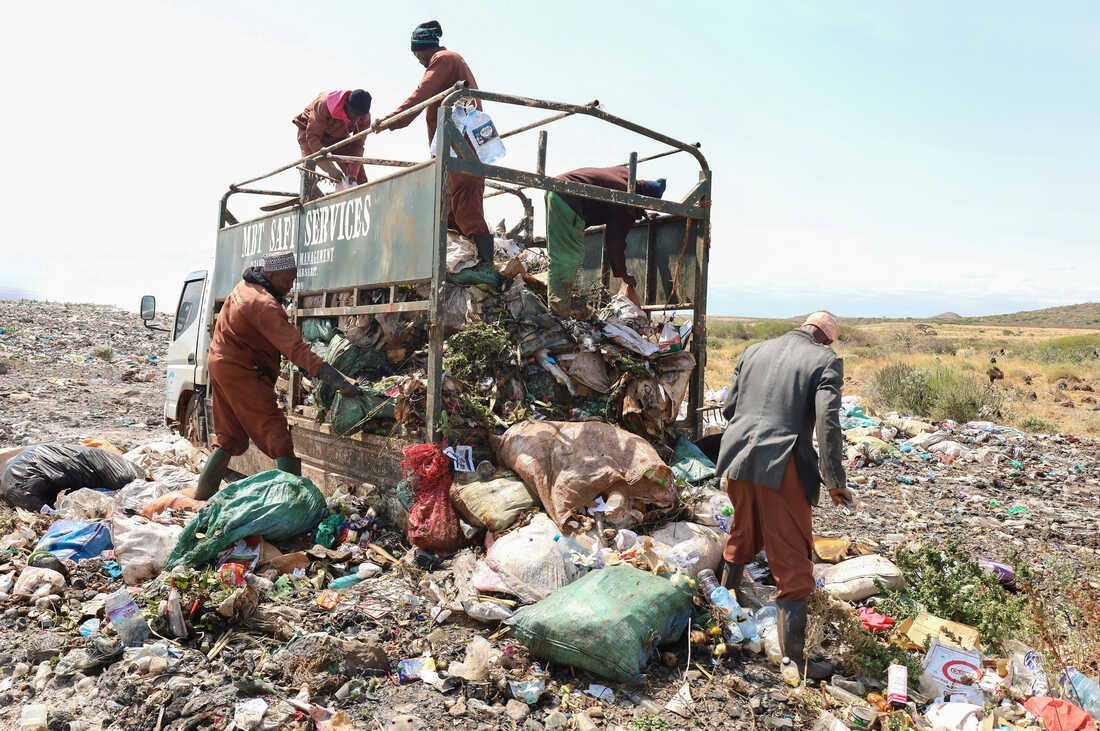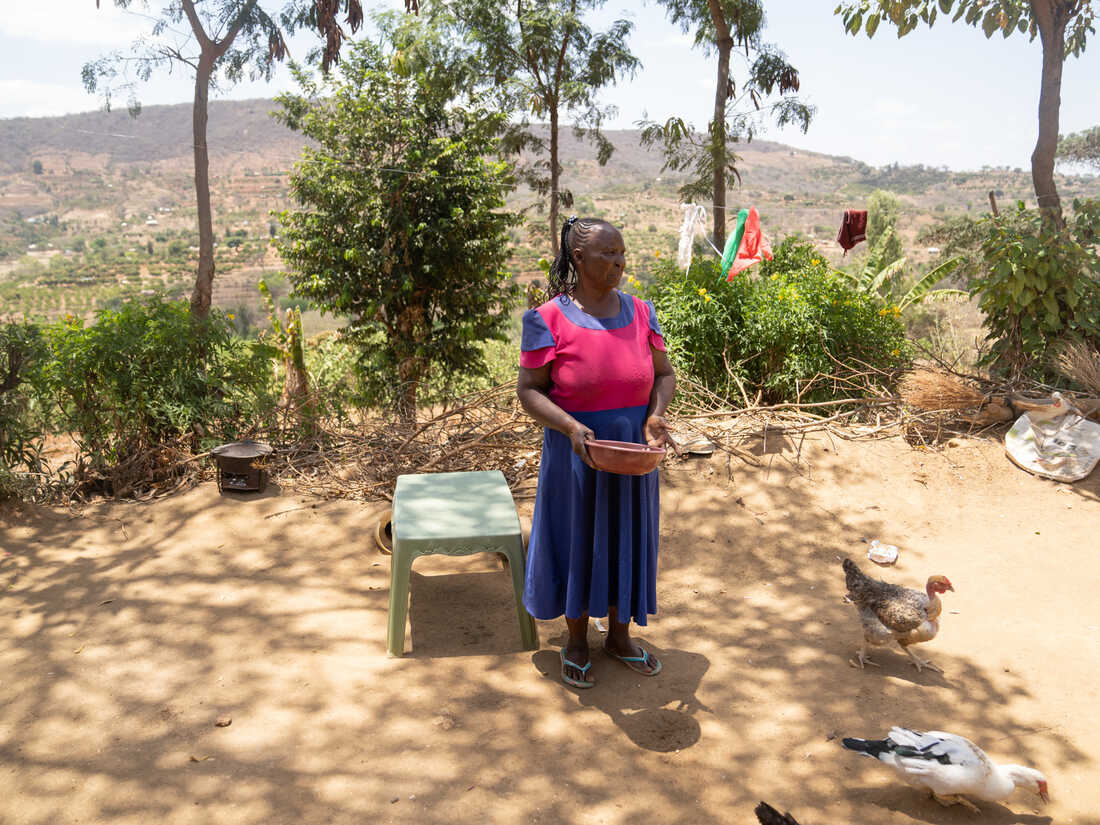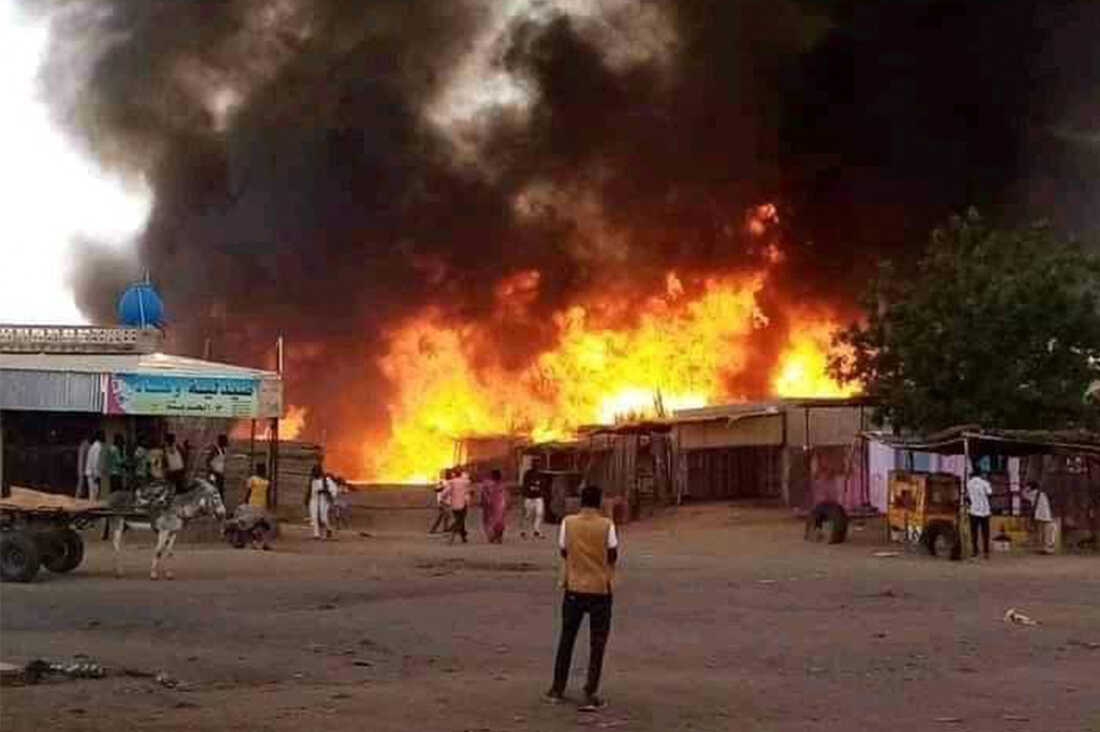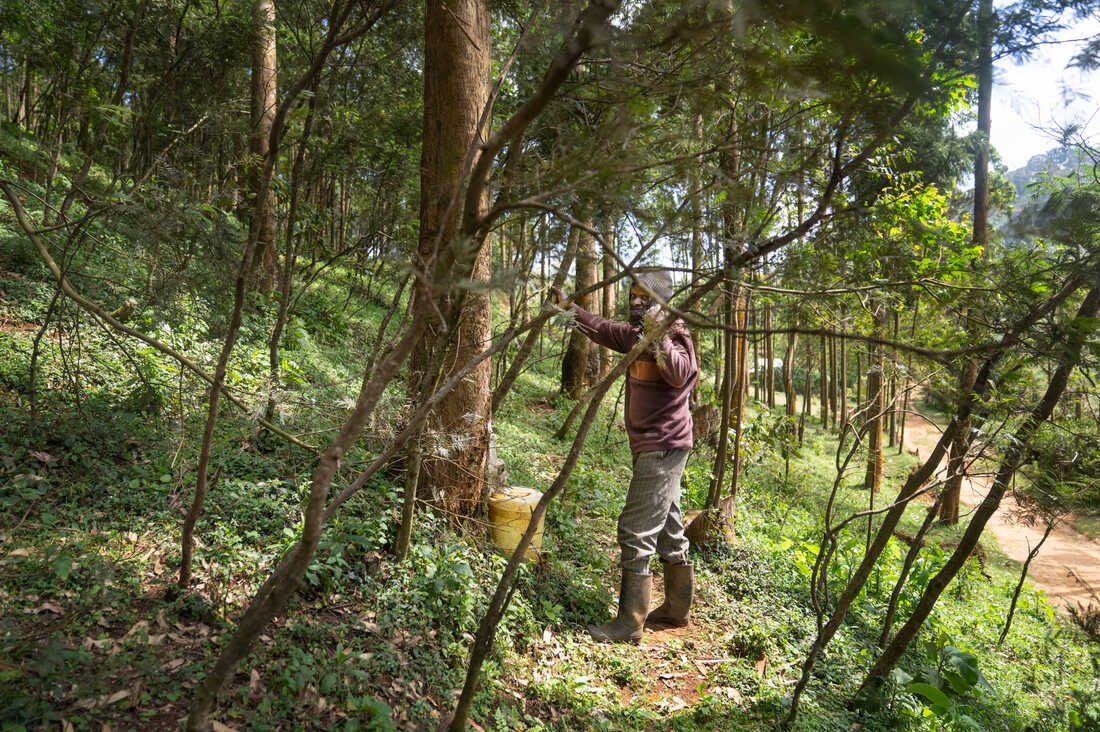The toughest plastic bag ban is failing: A tale of smugglers, dumps and dying goats
By Scovian Lillian
Trash collectors from Marsabit Safi Services offload waste at the Dadach Boshe dump. Even though Kenyan banned single-use plastic bags in 2016, they're still piling up at the dump and blowing off to litter the landscape and bodies of water. Scovian Lillian for NPR hide caption
toggle caption Scovian Lillian for NPRTrash collectors from Marsabit Safi Services offload waste at the Dadach Boshe dump. Even though Kenyan banned single-use plastic bags in 2016, they're still piling up at the dump and blowing off to litter the landscape and bodies of water.
Scovian Lillian for NPRThe banned bags are back.
In 2017, Kenya passed a law banning single-use plastic bags — the kind that grocery stores and other vendors give you to hold your purchases. The law was inspired by the toll of plastic pollution. The bags used to package food and other products were exempted.
A ban with purpose — and teeth
It was hailed as a ground-breaking law by other countries and even the United Nations. When people toss the bags, they create all sorts of problems. They clog drainage systems. In dumps, where trash is sometimes burned, they release toxins. They end up in rivers and streams. And like all plastic detritus, they degrade into microplastics, which scientists have found in the bloodstreams of fish and humans as well. Although no definitive impacts of microplastics on animal and human health have been established, studies have raised concerns about possible harm.
At Dadach Boshe dump, 23-year-old waste vendor Suleiman Galgalo picks among the plastic bags to find bottles and scrap metal he can sell. Scovian Lillian for NPR hide caption
toggle caption Scovian Lillian for NPRAt Dadach Boshe dump, 23-year-old waste vendor Suleiman Galgalo picks among the plastic bags to find bottles and scrap metal he can sell.
Scovian Lillian for NPRBut in 2023, the colorful, single-use plastic bags are piling up in the Dadach Boshe dump, which serves Marsabit County, with a population of about half a million. What's more, as strong winds send the bags flying. They catch on tree branches and land in patches of grass, where grazing animals might find them.
Since Kenya's bag manufacturers stopped producing bags due to the ban, the question looms: Where are the bags coming from?
Bag smugglers
Turns out that they're smuggled into Kenya from its neighbors – and not just in Marsabit county.
Golompo Duba, who lives about a mile and a quarter from the dump, had a flock of 150 goats. He believes that 10 of them died after inadvertently ingesting plastic bags as they searched for vegetation. Scovian Lillian for NPR hide caption
toggle caption Scovian Lillian for NPRGolompo Duba, who lives about a mile and a quarter from the dump, had a flock of 150 goats. He believes that 10 of them died after inadvertently ingesting plastic bags as they searched for vegetation.
Scovian Lillian for NPRStanley Sakimpa, a veterinarian in Nairobi, confirms that plastic bags ingestion can be fatal to goats and cows — although not as risky for donkeys. "Goats and cattle have four [compartments in their] stomachs, the rumen, reticulum, omasum and abomasum, but donkeys have one like humans, which makes it easier for them to defecate the ingested bags. In goats and cows, the bags remain in the stomach lining making it difficult for fodder or pasture to move through the four stomachs [compartments]. These plastic bags then cause blockage and eventually death," he says.
He added that animals that lack ample grazing material will eat plastic bags. He says he has seen such cases in his work.
Duba himself went to a veterinarian for advice. He was told to give the goats salty water to reduce the swelling and aid in defecation. That did not help. Between the bags and the drought, Duba lost his entire herd and now works as a low-paid gravel crusher — crushing and selling it to constructors at a very low price.
Some area residents have similar stories of losing goats to plastic bag consumption, although no one is tracking just how many have died. Fatuma Molu, a fellow gravel crusher, says many find livestock owners find it pointless to speak out about the problem because they think no action will be taken. She adds that the goat owners try as much as possible to keep them from grazing around the dump site.
A government promise of action
The government is committed to enforcing the ban. In Nairobi County, Governor Johnson Sakaja took on this issue in a speech he gave on Kenya's Labour Day, May 1. He promised to crack down on single-use plastic bags (which he referred to as "plastic paper bags"): "Plastic paper bags were banned, but they have come back. In a week we are going to launch an operation to make sure that plastic paper bags are no longer in our markets because they are the ones clogging our drainage," he said.
The crackdown on smugglers who bring in bags has yet to take place. And so the bags continue to pile up at the Dadach Boshe dump. When men and boys head to the dump to collect plastic bottles and scrap metal to sell, they set fires to reduce the load of rubbish – which results in toxins in the air from the burning plastic bags.
But one group of dump visitors seem oblivious to the bag pileup. On a recent day, several baboons came looking for snacks. They ignored the bags and focused on rotting avocadoes.



